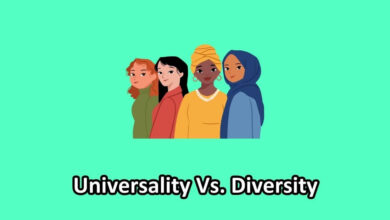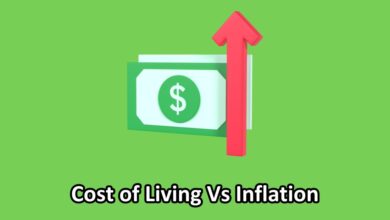Language vs Communication: What’s the Difference?
Have you ever found yourself confused between the terms language and communication? Are they interchangeable or do they have different meanings altogether? If you’ve ever wondered about this, then you’re in the right place! In this blog post, we’ll dive into the difference between language and communication and why it’s important to understand both concepts.
Language Vs Communication (Comparison Chart)
| Language | Communication |
|---|---|
| Language refers to a structured system of words, grammar, and syntax used by a community for communication, expressing thoughts, and conveying meaning. | Communication is the process of exchanging information, ideas, and emotions between individuals through various mediums, including verbal and nonverbal cues, to establish understanding and connection. |
| It uses words, gestures, or symbols. | It uses various modes and channels, including verbal, nonverbal, and visual cues, allowing individuals to express and understand messages. |
| Language is primarily verbal in form. | Communication can encompass both verbal and nonverbal forms. |
| Language is primarily used for conveying specific meanings, ideas, and messages. | Communication serves multiple purposes such as informing, persuading, listening, collaborating, influencing, etc. |
| Language is typically structured and rule-based in nature. | Communication can be informal and spontaneous in nature. |
| For Example, Spanish, English, German, Hindi, etc are languages. | For Example, Writing(emails, letters, etc), verbal and nonverbal cues, visuals(photographs, diagrams, videos, charts, etc), and so on. |
What is Language?
A language refers to a specific, unique system of communication that is used by a particular group of people. It consists of words, phrases, and rules for combining those words and phrases in order to communicate effectively.
Each language has its own structure, grammar rules, and syntax which make it distinct from other languages. Examples of languages are; English, Spanish, French, German, Japanese, Mandarin, Italian
What is Communication?
Communication, on the other hand, is the exchange of thoughts, messages, or information between two or more people. It involves the sending and receiving of verbal and non-verbal signals in order to understand each other.
Communication can take place in many forms, including verbal, non-verbal, and written (written language). Examples of communication include;
- Writing – emails, letters, memos, reports, etc.
- Visual – photographs, diagrams, charts, videos, etc.
- Listening – actively listening to others in conversation or during a presentation/lecture, etc.
- Technology-based – video conferencing platforms like Zoom and Skype; messaging apps like WhatsApp and Slack; social media platforms like Twitter and Instagram; and so on.
Benefits of Effective Communication Skills
- Improved Relationships: Whether you’re communicating with a co-worker, friend, or family member, developing better communication skills can lead to improved relationships.
- Greater Job Satisfaction and Career Opportunities: Being able to communicate effectively can also lead to greater job satisfaction. If you’re able to clearly articulate your ideas and thoughts, it can help you feel more confident in your abilities and open up new doors for career advancement.
- Increased Ability to Influence Others: Whether you’re trying to persuade a co-worker to see your side of an issue or convince your boss to give you a raise, effective communication skills can give you the power to influence others.
- Improved Problem-Solving Skills: When communication breakdowns occur, it can often lead to frustration and conflict. However, if you have strong communication skills, you’ll be better equipped to handle these situations by working through them in a constructive manner.
- Enhanced Mental Well-Being: When you’re able to express yourself effectively, it can help reduce stress and anxiety.
Key Differences Between Language and Communication
While comparing language vs communication, here we have included some of the key differences between them.
- Meaning – Language is a system of symbols with set rules for their use, while communication is the process of exchanging information between two or more individuals.
- Ambiguity – Language can be used to create ambiguity, while communication seeks to resolve ambiguity.
- Purpose – Language is used to convey messages, while communication is used for a variety of purposes such as informing, persuading, listening, and collaborating.
- Complexity – Language is often more complex than communication, as language has multiple layers of meaning and nuance. On the other hand, communication is usually much simpler than language.
How to Improve Your Communication Skills
Here we have briefly given four of the best ways to improve your communication skills.
- Listen Carefully: Listening is a key aspect of effective communication. When you listen carefully, you can understand and interpret the message better and also respond appropriately.
- Be Clear and Concise: Simplify your message by avoiding complex words or phrases and being as clear as possible in your statements.
- Practice Active Listening: Active listening means responding to what the other person says with understanding and empathy, rather than simply hearing them out without any response.
- Use Non-Verbal Cues: Non-verbal cues such as eye contact, facial expressions, body language, gestures, etc. are all important elements in communication that help convey your message more effectively.
Challenges of Language and Communication – How to Overcome
One of the biggest challenges of language is understanding all the rules and symbols. This can be difficult for someone who is just learning a new language.
Another challenge is communicating with people who speak different languages. This can be difficult because you may not be able to understand what they are saying.
Thirdly, there can also be cultural differences that make communication difficult. Different cultures may have different ways of communicating and expressing themselves.
In order to overcome these challenges, one needs to learn the language and understand its symbols and rules. If possible, try to find someone who speaks the same language as you so that you can get help understanding the language.
It is also important to be aware of cultural differences when communicating with someone from a different culture. Finally, practice using technology for communication as much as possible so that you become familiar with it and are able to use it effectively in your communications.
Conclusion
So in conclusion, we can say that language and communication are closely related, yet distinctly different concepts. Languages provide us with a shared understanding of how to communicate and express our thoughts. Communication, on the other hand, is the actual act of conveying a message from one person to another.
The differences between language and communication can be subtle but they both play important roles in helping us interact with others on both personal and professional levels.
Understanding the distinction between them can help you become more intentional about your own conversations, ensuring that you get your point across effectively no matter what language or medium you’re using.



